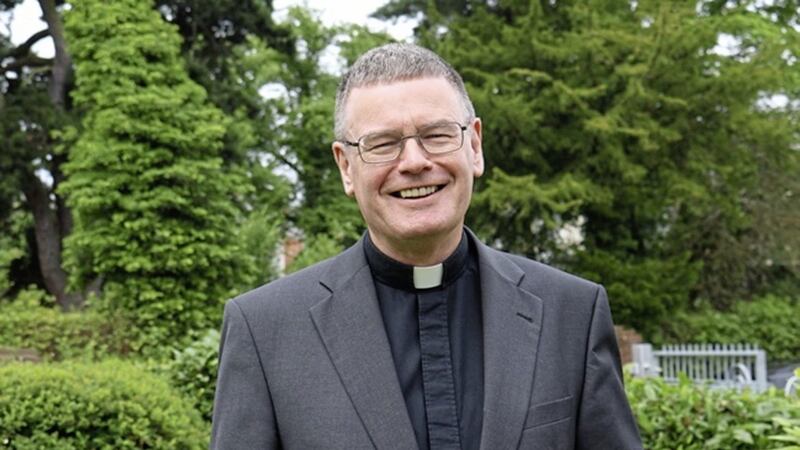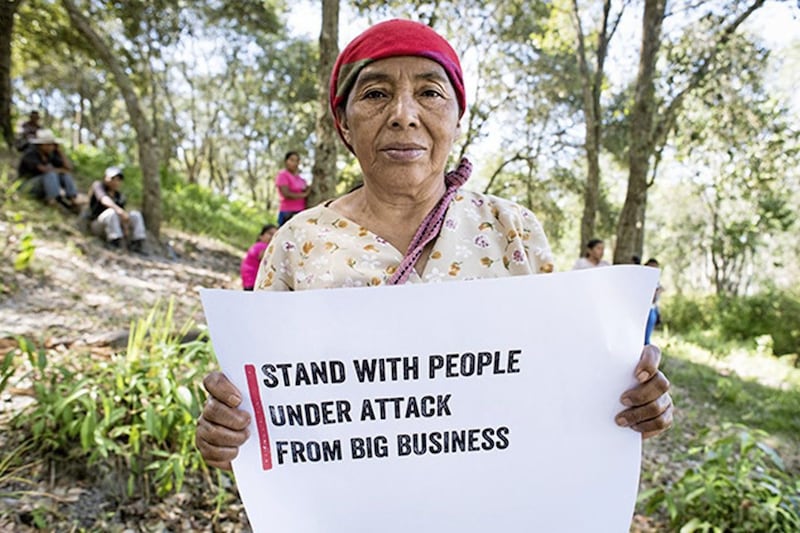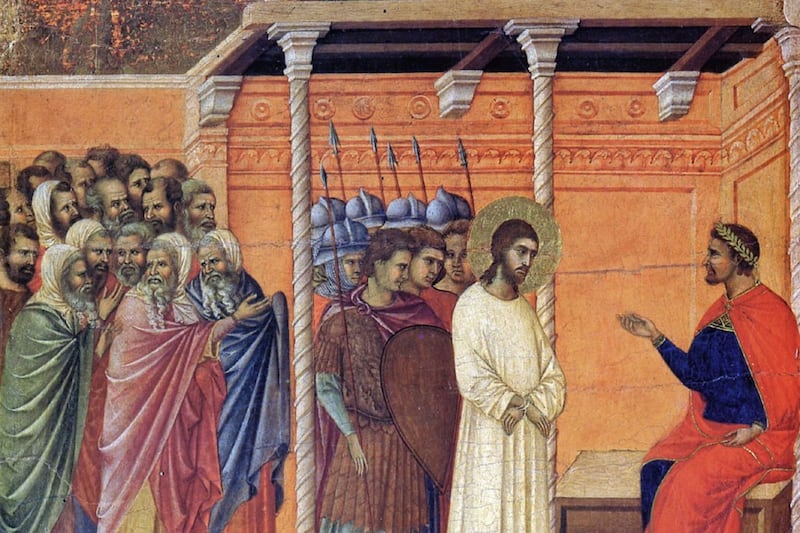ON THE morning after the Presidential election in the Unites States, like many another, I listened, in somewhat sombre mood, to the reports on the outcome. My mood was not helped when a Washington correspondent declared, "It is the end of the world as we know it!" Of course, only time will tell if that is an accurate assessment.
The Gospel, written in the first century at a time of turmoil, speaks also to our twenty-first century. Today, as then, architectural wonders are razed to the ground; nature capriciously asserts its destructive power; humanity appears incapable of avoiding the catastrophe of war. Nevertheless, the Gospel will have us hear the reassuring voice of Jesus Christ, making clear that, "throughout the history of humanity, God will always be the One who is present, close, provident, holy and merciful." (MV 6). With the Church, we proclaim once more, "for his mercy endures forever." (Ps. 136)
In proclaiming the Jubilee Year of Mercy, Pope Francis was seeking to underscore for today's world the reality that, "we live and move and have our being" (Sunday Preface V1) "under the merciful gaze of the Father". (MV 7). This divine mercy Pope Francis describes as God "throwing open the doors of his heart". During this Holy Year we have, in various ways, and at various times, crossed that threshold, rejoicing in a love which has no limits.
This mercy is made manifest for me in an ancient icon, often referred to as `the icon of friendship'. It shows Jesus, standing alongside a disciple, with his arm around the disciple's shoulder, both gazing in the same direction. That image of Jesus, with a gentle hand on the shoulder of his friend, never fails to captivate me, for that disciple is me, and it is you. Jesus is close to each of us, filled with a deep concern and love for each one, his arm is about your shoulders and mine.
Jesus never stands apart from us, not even when our lives are a mess and all is in a muddle. With a gentle hand on the shoulder, he guides us to look to the future with hope, and to take, with him, another step forward. We are what is closest to his heart. His presence is wonderfully discernible in the sacrament of Confession. This sacrament is the open door of Jesus' heart, the Jesus who welcomes us into the consolation of his love and pardon.
He sees in sin more than just a wilful act, it is a wound, a wound in need of treatment. The Pope has reminded us of something quite astonishing, but so very comforting: “Jesus forgives by caressing the wounds of our sins" (Santa Marta, 7/4/14), the Divine Physician heals with the "medicine of mercy". (MV 4) This beautiful sacrament is not a court, or a place of needless interrogation, but a surgery, a dispensary of the healing balm of mercy. The unique joy of the priest is to be the instrument of the Lord's tender love and forgiveness.
Jesus is the hand of God stretched out to humanity; he gathers us under his protective arm - "as a hen gathers her chicks under her wings". (Mt. 23:37) He showers us with his Father's love and mercy, he heals, he comforts, he understands, he gives hope. But he goes beyond all of this and looks into our eyes and says to each one of us, "if you understand what I have done for you, then "go and do likewise". (Lk.10:37) As we have been loved, so we are to love; "just as he is merciful, so we are called to be merciful" (MV 9); touched by compassion, we are to be compassionate. (cf MV 14) Mercy is to be our lifestyle - too be a Christian is to throw open the doors of our hearts to one another.
At the beginning of the Jubilee, Pope Francis exclaimed, "Let us open our eyes and see the misery of the world...may we reach out to (the afflicted)...break down the barriers of indifference" (MV 15) We have sought to do this in Down and Connor, for example, by our response to the Pope's appeal for the displaced in Ukraine; in our support for the Bishop's initiative to welcome refugees from the Middle East; through our annual Lenten Trocaire campaign; added to this are the many ways in which parishes and individuals have reached out and, by prayer and action, put a supportive arm about the shoulders of a suffering community or person. The Jubilee of Mercy has reawakened our conscience, challenged our indifference, touched our hearts, and caused us to realise that it is by being revolutionaries of tenderness (cf EG 88) that our faith becomes credible. (cf MV 10,25)
A special feature of this Holy Year has been pilgrimage; many have journeyed to Rome to reach the Holy Door; many hundreds have come to St. Patrick's, and to Clonard Monastery, to pass through the Holy Door, and associated with this are our annual pilgrimages to, Lourdes, Knock, Lough Derg and Saul. These pilgrimages represent that most important pilgrimage of all - the journey each of us must make in this life. (cf MV 14) However, as we take our steps on our pilgrim way through life, Pope Francis reminds us that it is our first task, as well as being a beautiful work of mercy, to be "people who wish to share their joy, who point to a horizon of beauty and who invite others to a beautiful banquet" (EG 15) What does he mean? Elsewhere he has said, bluntly, "if something should rightly disturb us and trouble our consciences, it is that fact that so many of our brothers and sisters are living without the strength, light and consolation born of friendship with Jesus Christ, without a community of faith to support them, without meaning and a goal in life." (EG 49)
The Jubilee has demanded that we look at the world with the eyes of mercy, and see its misery - a world starving; starving not only for material things, but starving for the love of Christ. What will motivate us to respond to the Pope's appeal to reach out to those in our families, in our community, and beyond, who have lost contact with the friendship Christ? We must not allow familiarity with the concluding words of the Mass to weaken in their challenge: "Go and announce the Gospel of the Lord."
As we come now to the close of this great Jubilee of Mercy, may we continue to feel the love of Christ about us, like an arm upon the shoulder; and may we hear his gentle but persistent voice say "What kind of love would not feel the need to speak of the beloved, to point him out, to make him known?" (EG 264)
:: Taken from the Homily given by Fr Edward O'Donnell on the occasion of the conclusion of the Jubilee of Mercy in the Diocese of Down and Connor.








